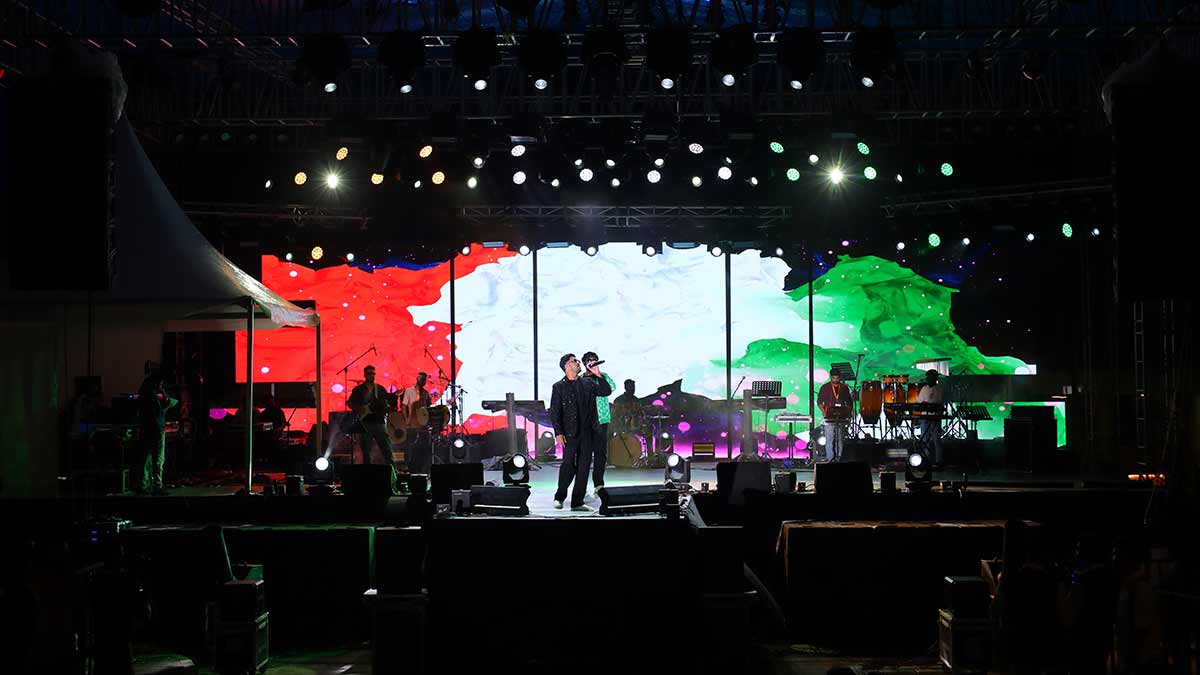Concert economy: A new rhythm for India's growth and cultural pride

Every great city has a rhythm. You feel it when a thousand voices sing together, when lights flash across a stage, and when strangers merge into one collective heartbeat. That is the magic of a concert. It is not merely music—it is emotion, connection and celebration. And, today, under the visionary leadership of Prime Minister Narendra Modi, that rhythm is finding its pulse in the economy.
The prime minister has called upon India’s creative industries to embrace what he described as the “concert economy”. Speaking at the Utkarsh Odisha (Make in Odisha Conclave 2025) in January, he said India’s talent and energy can turn live events into a powerful force for tourism, employment and cultural pride. In a civilisation steeped in music, festivals and arts, he reminded us that creativity must not remain confined to temples and textbooks—it must be celebrated in arenas and open grounds, where a young India expresses itself with confidence.
Delhi has taken that cue. Under the dynamic leadership of Chief Minister Rekha Gupta and Tourism and Culture Minister Kapil Mishra, the government has signed a landmark memorandum of understanding with a leading live-entertainment platform. The goal is clear: to make Delhi a global hub for concerts and cultural events, contributing over Rs3,000 crore to the economy in the next two years. Venue rentals are being simplified, permissions made faster and world-class infrastructure is being developed to host artists from across the world while giving Indian talent a stage of their own.
The results speak for themselves. When Coldplay performed in Ahmedabad earlier this year, an EY-Parthenon report estimated an economic impact of Rs641 crore—Rs392 crore flowed directly to the city’s economy, along with Rs72 crore in GST revenue. Internationally, the UK’s live-music sector contributed over £6.1 billion to its economy in 2023. The figures show that concerts are not a luxury—they are a legitimate growth industry that fuels hotels, transport, retail, design and hospitality.
For Delhi, this is more than a tourism strategy—it is a people’s policy. Every sound engineer, lighting technician, food-stall owner, driver and young musician stands to benefit. When thousands gather for an evening of music, the ripple touches everyone—from the cab driver ferrying fans to the gates to the small café serving them chai after the show. The concert economy brings dignity to local jobs and excitement to local lives.
It is also a golden era for India’s creative youth. Budding singers, rappers, DJs and bands finally have access to professional stages and paying audiences. They are learning production, sound design, marketing and crowd engagement. This is how creative ecosystems are born: through opportunity and exposure. Delhi’s transformation into a live-events capital could well make it a launchpad for the next generation of global performers.
As policymakers, we must ensure that this growth is inclusive and sustainable. Single-window event clearances, safety protocols, skill-training programmes and eco-friendly staging will help this industry thrive responsibly. When government, private enterprise and the creative community work together, the possibilities are boundless.
At the national level, Modi deserves credit for recognising concerts as engines of economic growth. In Delhi, Gupta and Mishra merit appreciation for translating that vision into policy and action. Together, they are turning sound into substance and melody into momentum.
The concert economy is not just a celebration of music; it is the soundtrack of a rising Bharat. It tells the world that India does not just manufacture and innovate—it performs. And when Delhi becomes the stage, the world will listen.
As global icons like Travis Scott prepare to perform in the capital, one thing is certain: India is not just hosting concerts, it is creating culture. The vibe is electric, young people are fired up and the beat of Delhi is about to drop louder than ever.
Bansuri Swaraj is the Lok Sabha member from New Delhi.
Columns